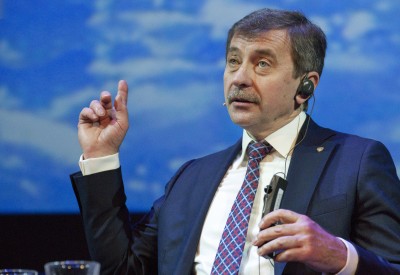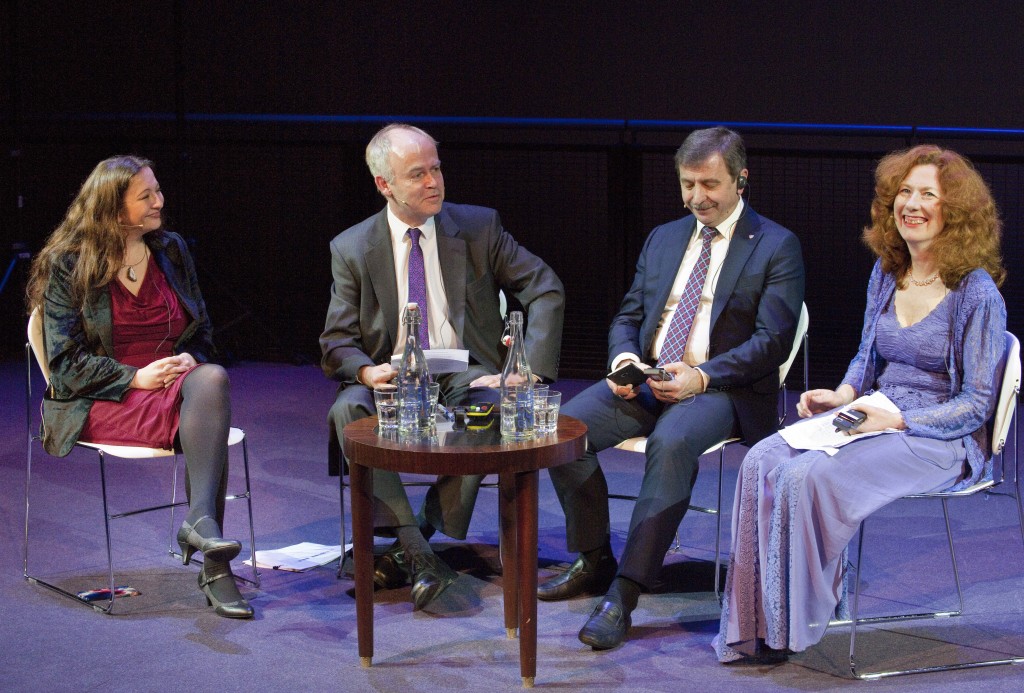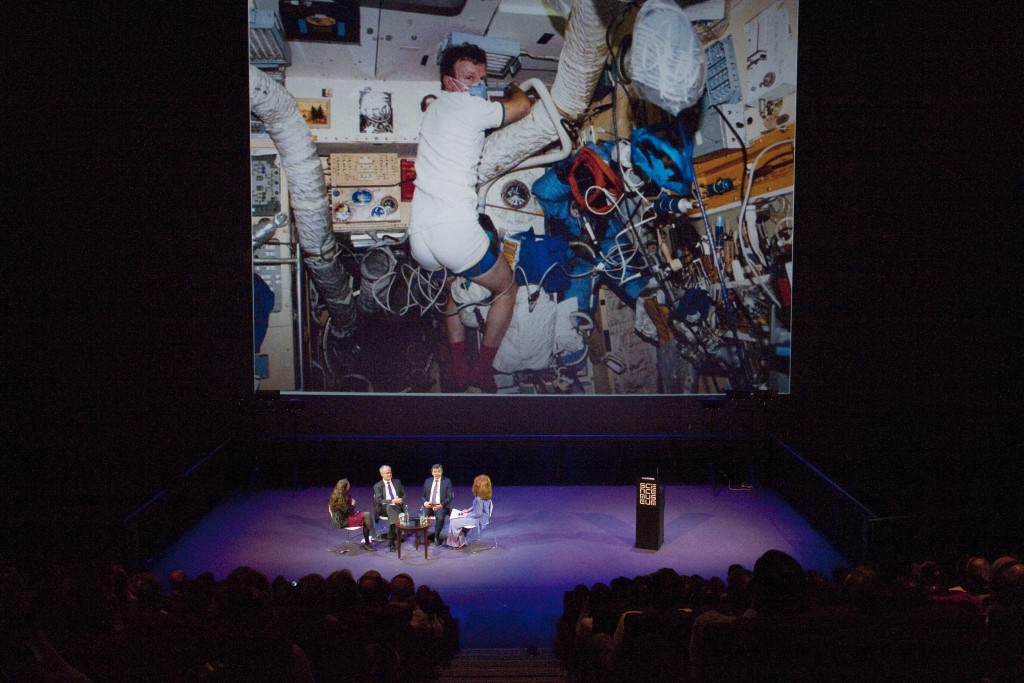The Science Museum had an exciting visit by Russian Cosmonaut Aleksandr Lazutkin on 13 November 2015.
Lazutkin © Science Museum
Aleksandr Lazutkin was a flight engineer on the 1997 Soyuz TM-25 mission to the Mir space station, where he spent a total of 184 days. During his time on Mir he experienced a power cut, a collision and a fire on the station.
He was joined by space law and colonisation expert Dr Jill Stuart and philosopher Professor Angie Hobbs. They participated in a fascinating panel discussion in our IMAX Theatre on the topic of whether humans are destined to live in space, which was chaired by Doug Millard, Senior Curator for the Cosmonauts exhibition.
Lazutkin, Stuart, Hobbs and Millard on stage © Science Museum
The cultural roots of the Russian space programme were in cosmological and mystical thinking, and in the belief that humanity’s destiny was to colonise the cosmos. The forefather of Russian cosmonautics, Konstantin Tsiolkovsky famously said ‘Earth is the cradle of humanity, but one cannot live in a cradle forever’.
In our own era, the motivations of nations and private companies to initiate and maintain space projects are just as varied and complex. Geopolitical positioning and colonisation, the search for extra-terrestrial life, the pursuit of materials for mining, the desire for scientific knowledge and the simple, primal urge to satisfy human desire are all incentives to travel beyond Earth’s boundaries.
Stuart talked about the legislation related to space exploration including the Outer Space Treaty of 1967, which forms the basis of international space law and exclusively limits the use of the Moon and other celestial bodies to peaceful purposes. It also states that these celestial bodies are the common heritage of mankind and cannot be claimed by a particular government or nation. She discussed the rise of non-government, commercial and private enterprises partaking in space missions such as SpaceX, Mars One and Planetary Resources. What does this mean for space colonisation and the potential permanent human habitation off planet Earth?! Governments are no longer the sole players in space development. Who then will determine the laws that govern our behaviour and activities in space? How will we interact with one another in outer space?
Hobbs talked about the ethics around space travel. By messing with other planets, such as asteroid mining, we may destroy yet undiscovered life or ruin the potential for future life. What’s to prevent problems on Earth from following us into outer space, if we have not evolved the attitudes and behaviours that have contributed to those problems? We have destroyed our planet through pollution, global warming and war. Should we be redirecting the significant investments in space exploration to solve more pressing problems on Earth, such as alleviating poverty and hunger?
Another interesting question raised was should we send humans to explore other planets when robots might do the job just as well but more safely and less expensively? There is a big debate around whether human space travel is worth the money and risk.
Lazutkin was very positive about human space travel. He said that one views Earth differently from space. Nations are united in space, but unfortunately this harmony is absent on Earth. He shared some amazing photos of his mission to the Mir space station which gave a real insight into what it is like to live in space. He also told a very comical story about his colleague throwing a fork at him over the dinner table back on Earth because he had got so accustomed to the weightlessness in space!
Lazutkin’s presentation © Science Museum
The discussion about whether humans are destined to live in space is a complex one. It has given rise to many social, ethical and political issues, and so the question remains open…
Cosmonauts: Birth of the Space Age ran from 18 September 2015 – 13 March 2016. The exhibition was supported by BP and has additional support from ART RUSSE (Major Funder) and the Blavatnik Family Foundation.


